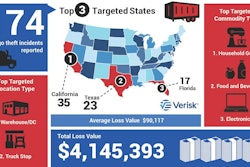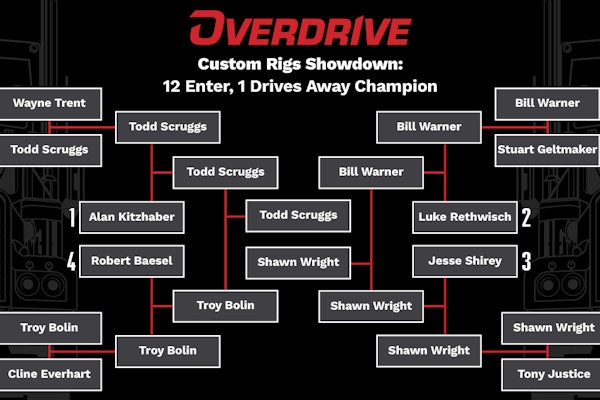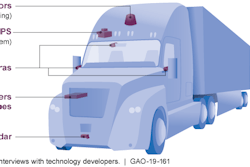Conservative judicial activists call it a win, climate activists call it a setback, and trucking expects "significant ramifications" after the Supreme Court dealt two major blows to federal regulators.
Two decisions in late June, just before the court's annual recess, undo decades of legal precedent and case law. The decisions could seriously diminish the ability of federal agencies, such as the Federal Motor Carrier Safety Administration and the Environmental Protection Agency, to write regulations for businesses and individuals.
In 1984 the Supreme Court ruled in the Chevron v. Natural Resources Defense Council case that courts should defer to an agency’s interpretations of its own statutes, within reason, and in the absence of specific legislation from Congress dictating otherwise.
The framers of the Constitution "anticipated that courts would often confront statutory ambiguities and expected that courts would resolve them by exercising independent legal judgment,” Supreme Court Chief Justice John Roberts wrote in the majority's decision. The Chevron decision “gravely erred in concluding that the inquiry is fundamentally different just because an administrative interpretation is in play.”

A second Supreme Court Case, Comer Post, Inc. v. Board of Governors, eliminated a six-year statute of limitations on corporate plaintiffs challenging federal regulations.
Together, it's a one-two punch that may welcome new challenges to various regulations, likewise new court decisions on regulatory disputes, some of which may have seemed long since settled.
How trucking is responding to Chevron's overruling
Within trucking, FMCSA benefited from so-called "Chevron deference" during the electronic logging device mandate's day in court at the the Chicago-based 7th Circuit Court of Appeals in 2016. FMCSA at that time argued it deserved leeway to implement the mandate over the Owner-Operator Independent Drivers Association's argument that ELDs could continue to open drivers up to unacceptable harassment, even with FMCSA efforts to address the issue with separate rulemakings in tandem with its ELD mandate.
“The U.S. Supreme Court’s overturning of the Chevron doctrine will undoubtedly have significant ramifications on federal regulations that affect the trucking industry," an OOIDA spokesperson said. "OOIDA’s legal team is in the process of conducting a thorough analysis of the decision and will provide our members and the larger trucking community insight on how this could potentially affect their business operations.”
The American Trucking Associations expressed hope that courts could bring clarity, stability and maybe a bit less politics to trucking regulation.
"With the overruling of Chevron, agencies will get less deference from the courts in the way they interpret the often broad and ambiguous statutes through which Congress authorizes them to issue regulations," said ATA General Counsel Rich Pianka. "That should mean courts will now be more empowered to correct agencies when they overstep that authority. And equally if not more importantly, it should translate to greater long-term regulatory stability for the trucking industry, and less of the back and forth we see at some agencies, on some issues, every time the executive branch changes hands."
[Related: Are leased owner-operators truly independent contractors for fair-labor-law purposes?]
U.S. Chamber of Commerce President and CEO Suzanne P. Clark concurred with ATA in a statement saying overruling Chevron "is an important course correction that will help create a more predictable and stable regulatory environment."
The prior deference doctrine, she added, "allowed each new presidential administration to advance their political agendas through flip-flopping regulations and not provide consistent rules of the road for businesses to navigate, plan, and invest in the future. The Chamber will continue to urge courts to faithfully interpret statutes that govern federal agencies and to ensure federal agencies act in a reasonable and lawful manner."
[Related: Audio: OOIDA v. U.S. DOT -- arguments around the ELD mandate delivered in court]
How will the Supreme Court cases impact FMCSA and EPA?
Before being overruled, "Chevron deference" mostly applied to areas of ambiguity over what Congress hadn't explicitly laid out.
“The regulatory statutes Congress passes often contain ambiguities and gaps. Sometimes they are intentional," wrote Justice Elena Kagan, dissenting against Chevron being overruled. “Perhaps Congress ‘consciously desired’ the administering agency to fill in aspects of the legislative scheme, believing that regulatory experts would be 'in a better position’ than legislators to do so.”
In FMCSA's case, Congress explicitly laid out in the Motor Carrier Safety Improvement Act of 1999 that the agency should exist and pursue commercial vehicle safety initiatives, sometimes in "innovative" ways, as well as regulate, register and license freight carriers and brokers.
The EPA also has significant judicial and legislative basis to regulate and even go after greenhouse gases, specifically from fossil fuels, thanks in part to the Inflation Reduction Act.
However, a recent lawsuit was filed in D.C. by the American Petroleum Institute (API), which represents the oil and gas industry, with OOIDA as a co-petitioner, attacking EPA's Phase 3 Greenhouse Gas regulations for heavy-duty trucks, among other suits and Congressional efforts aimed at overturning the Phase 3 regs. API’s lawsuit says EPA’s rule “exceeds the agency’s statutory authority and is otherwise arbitrary, capricious, an abuse of discretion, and not in accordance with law.”
As with any legal decision as potentially momentous as Chevron's overruling, there's a lot that's unknown about the final ramifications at this point. Challenges like API's to federal regulators' abilities now will have to percolate through lower courts to impact federal regulations, according to the Chamber of Commerce.
"For example, what does it mean to say that courts may not defer to agencies’ legal interpretations but should give careful attention or respect to the agencies’ judgment?" the Chamber wrote recently. "And under what circumstances should courts conclude that Congress has delegated interpretive authority to an agency consistent with constitutional limits on such delegations?"
[Related: Congress doubles down, insisting EPA roll back Phase 3 GHG rule]









